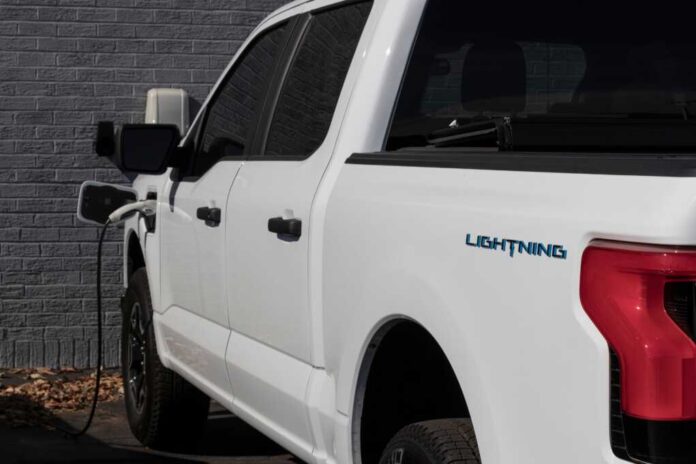
In a significant shift reflecting market trends, Ford Motor Co. has announced a reduction in the production of its F-150 Lightning, America’s first major electric pickup truck. This move, set to begin on April 1, is a significant indicator of the challenges the electric vehicle (EV) sector faces, especially in a market still dominated by Americans’ preference for traditional gas-powered vehicles.
The cutback at Ford’s Michigan Rouge Electric Vehicle Center, where the F-150 Lightning is produced, will result in the facility operating just one production shift. This adjustment will impact approximately 1,400 workers. While some of these employees will be transferred to the Michigan Assembly Plant to bolster the production of gas-powered vehicles such as the Ford Bronco and Ranger, the remainder faces an uncertain future, with options including transfers to other Ford facilities or participation in a “Special Retirement Incentive Program.”
BREAKING: Ford cuts production of F-150 Lightning EV due to weak demand https://t.co/SFXEMT0WpI
— Financelot (@FinanceLancelot) January 19, 2024
Ford CEO Jim Farley emphasized the company’s commitment to manufacturing flexibility, underscoring the ability to balance growth and profitability while catering to customer preferences. “We are taking advantage of our manufacturing flexibility to offer customers choices while balancing our growth and profitability. Customers love the F-150 Lightning, America’s best-selling EV pickup,” Farley stated. Despite this, the sales figures tell a different story. In 2023, Ford sold just over 24,000 F-150 Lightnings, which, while representing a 55% increase from the previous year, falls significantly short of initial production targets.
The production cut comes amid broader concerns in the automotive industry regarding the rapid shift to electric vehicles. The Biden Administration’s push for a greener future, including proposals for stringent vehicle emissions regulations, has been met with resistance from major automakers. The production adjustment by Ford aligns with these concerns, suggesting a more cautious approach to electric vehicles, which, while growing in popularity, still face hurdles in terms of consumer acceptance and infrastructure support.
The reduction in EV production is juxtaposed with the increased production of traditional gas-powered models. The Michigan Assembly Plant, for example, is gearing up to expand its workforce by nearly 900 employees to meet the demand for the Ranger and Ranger Raptor, which are set for a 2024 release. This shift underscores the continuing demand for gas-powered vehicles and perhaps a recalibration of expectations regarding how consumers will transition to electric models.
Furthermore, the F-150 Lightning production cut reflects a broader trend in the industry, where legacy automakers are cautiously balancing their portfolios between electric and traditional vehicles.
While Ford and other manufacturers might recognize the potential of electric vehicles, reality demands an acknowledgment that the American market is not ready for a full-scale shift to EVs.














